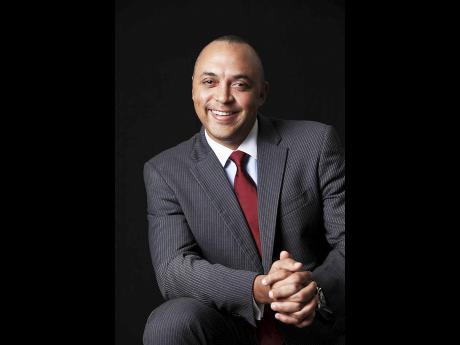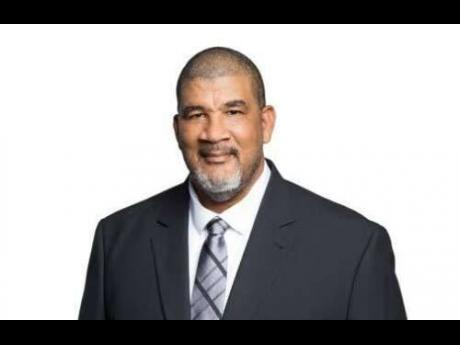US$200m cash hunt on for St Croix refinery
A consortium that is said to include three of Jamaica’s leading investment houses – JMMB, Barita, and Sygnus – as well as three directors of the Jamaican bunkering outfit that initially claimed it bought the company, says it is on the hunt for US...
A consortium that is said to include three of Jamaica’s leading investment houses – JMMB, Barita, and Sygnus – as well as three directors of the Jamaican bunkering outfit that initially claimed it bought the company, says it is on the hunt for US$200m to restart the 650,000 barrels per day Limetree Bay refinery in the US Virgin Island of St Croix.
Charles Chambers, the CEO of bunkering business West Indies Petroleum Limited (WIPL), who has declared himself a shareholder in his personal capacity in Port Hamilton Refining and Transportation, LLLP (PHRT), the refinery’s owner, says that PHRT has enlisted the US company, Jefferies Financial Group, to source the capital. The details of this engagement were not disclosed.
“We could re-start (the refinery) in a simple ‘topping mode’ with all the safety and environmentally conscious measures in place in a relatively short space of time – say about nine months,” Chambers told the Financial Gleaner. Topping-up mode is the least complex of the possible operational arrangements.
Chambers apart, the current precise involvement of two other directors of controversy-plagued WIPL, chairman Gordon Shirley and Tarik Felix, in the refinery’s ownership and the cash hunt to get the idle asset going, could not be immediately ascertained.
Last December, WIPL, which has been engaged in protracted boardroom fights that have included the ousting of some of its founding members and cross allegations of misuse of assets, reported that it bought the Limetree Bay refinery for US$62 million in a bankruptcy auction. But questions were soon raised by US regulators, and others, about the capacity of the small Jamaican outfit to absorb the acquisition and finance the refinery’s development.
However, in June, half a year after WIPL’s original declaration, the company announced that it didn’t in fact own the refinery.
“West Indies Petroleum Limited (WIPL) wishes to clarify that contrary to media reports, it is not a stakeholder in the Limetree Bay Refinery in St Croix in the US Virgin Islands and was not the entity which purchased the refinery,” the company said in a statement to the US Virgin Islands press.
It added: “Although an initial participant in the early bidding process, due to legal factors, WIPL elected not to further pursue the initiative. Those factors also constrained WIPL from commenting sooner about the inaccurate reports in the media. The sale of the Limetree Bay Refinery was successfully closed earlier this year by Port Hamilton Refining and Transportation, which is a consortium of United States and Caribbean based investors.”
According to Chambers, an outfit named Red Crown, comprising former senior executives at the global oil company BP, is among the group helping to guide PHRT towards the reopening of the refinery.
Built in 1966 by what is today Hess Corporation, a large US energy company, the Limetree Bay refinery is the largest petroleum facility in the English-speaking Caribbean, and is second in the region only to the Paraguana Refinery Complex in Venezuela, owned by the Venezuelan government-controlled PDVSA.
In fact, until an early bankruptcy sale in 2016, PDVSA held a 50 per cent stake in the refinery – shares it acquired from Hess. At that time, the refinery was bought by a group led by the Boston-based equity investor Arclight Capital Partners, which reported that it had commitments for US$3 billion to revitalise the refinery and its next-door storage terminal. Its financial distress apart, the refinery had been shuttered by US regulators over environmental concerns.
Several issues delayed the various iterations of the resuscitation plans, and by 2019, the projected bill for Arclight’s ambitions was US$4.1 billion. Ultimately, the scheme foundered, leading to the latest bankruptcy and the reported acquisition by PHRT.
“The plant was upgraded to an incredible standard, including the piping, equipment, and control rooms, but it needed the right operators to avoid mishaps,” Chambers told the Financial Gleaner.
He added that the financial consortium arrangement with the professional guidance it is said to be getting is the best possible structure for the investment at this time.
However, analysts say that even if PHRT raises the capital to finance Limetree Bay’s restart, its operation still faces challenges, including proving to the US Environmental Protection Agency that it has overcome its environment problems that caused it to release noxious gasses into the atmosphere. There are also questions about the availability of the heavy crude favoured by the refinery as well as suggestions that it might require up to a further US$800 million to US$1 billion to complete the overhaul.
However, Chambers said that Limetree Bay will be “a modern, large, and efficient refinery that is exempt from the Jones Act”, a law that requires goods shipped between US ports to be transported on ships that are built, owned, and operated by United States citizens or permanent residents.
“Effectively, what that meant was that the US East Coast and Puerto Rico became a very good home for products coming out of the refinery. Because of the exemption you can use non-US flagged vessels and save on costs,” Chambers said.
While making clear that there was no agreement for WIPL “to benefit directly from the refinery”, Chambers said the confluences of circumstances could present opportunities for the bunkering company.
“Our cost of product will be dramatically lower than it is now” because of access to petroleum from the Limetree Bay refinery, he said.



